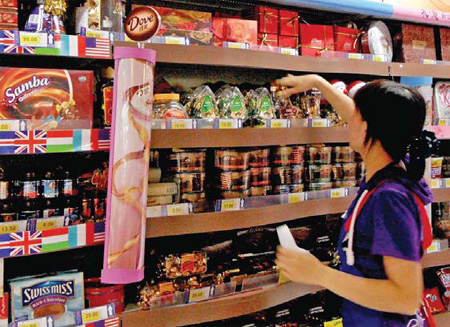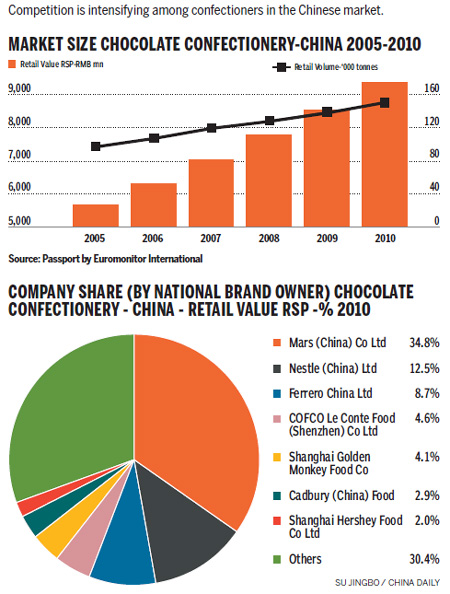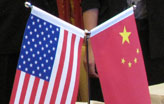Economy
Sweet Business
Updated: 2011-07-22 14:08
By Lin Jing (China Daily European Weekly)
"There's a hole in the breakfast market now and we are moving to fill it," she says.
|
 Competition is intensifying among confectioners in the Chinese market. Liu Junfeng / for China Daily |
Revenue at Kraft China has quadrupled in the past four years, and Davis says that the company is designing new products to cater to the older consumers who may not be used to Western food.
Mars China, a multinational corporation in this industry known for Dove chocolate, M&M's, Snickers, Skittles and Mars bars, is confident in the Chinese market.
"As the local market gradually matures, we will continue our investment in China, to enhance productivity and technology levels. In the coming five to 10 years, the company is planning to set up another factory," says Ehab AbouOaf, Mars China's president.
|
 |
The company now has two chocolate factories in Beijing and Zhejiang province. He adds that the third factory in China could supplement the increasing demand of the Chinese market.
After its acquisition of Wrigley in 2007, Mars became the No 1 candy producer in the world, including chocolate, candies, food and beverages. Currently, China is the largest market for Dove chocolate.
Some foreign companies have applied multiple store expansion as their main strategy to grow business.
Paris Baguette, the bakery division of SPC Corporation headquartered in South Korea, entered Beijing in 2005 and now has 46 stores in five cities.
Zhu Juan, public relations manager with Paris Baguette, says that the company has presented satisfactory performances from its Chinese operations.
"The average daily sales per store has increased from 543 euros in 2006 to 2,172 euros in 2011. The company is also planning to increase the number of stores to 200 by 2014."
Zhu says that Chinese people have gradually started buying breads and cakes on a regular basis.
"It is not just young people. Some customers, from children to the elder, have already used confectioneries as their dinner or lunch."
BreadTalk, a Singapore-based bakery brand, opened 50 BreadTalk outlets in China in 2010. It has also started operating in four new cities last year, bringing the total number of cities to 32.
Founded in 2000, the group penetrated the Chinese market in 2005 by acquiring Topwin Investment Holding Pte Ltd, which owned and operated 13 food courts under the brand name "Food Republic".
Sales in China increased from about 50 million euros to 56 million euros from 2009 to 2010.
According to its 2010 annual report, the company has appointed a head of business development in China to spearhead its real estate strategy in support of outlet expansions.
Besides traditional confectionery brands, companies such as Starbucks Corp, the world's largest coffee chain, is also showing strong interest in the booming industry.

Specials

China-US Governors Forum
The first China-US Governors Forum is held July 15 in the Salt Lake City, the United States.

My China story
Foreign readers are invited to share your China stories.

Rare earths export quota
China kept its export quota at almost the same level as last year.